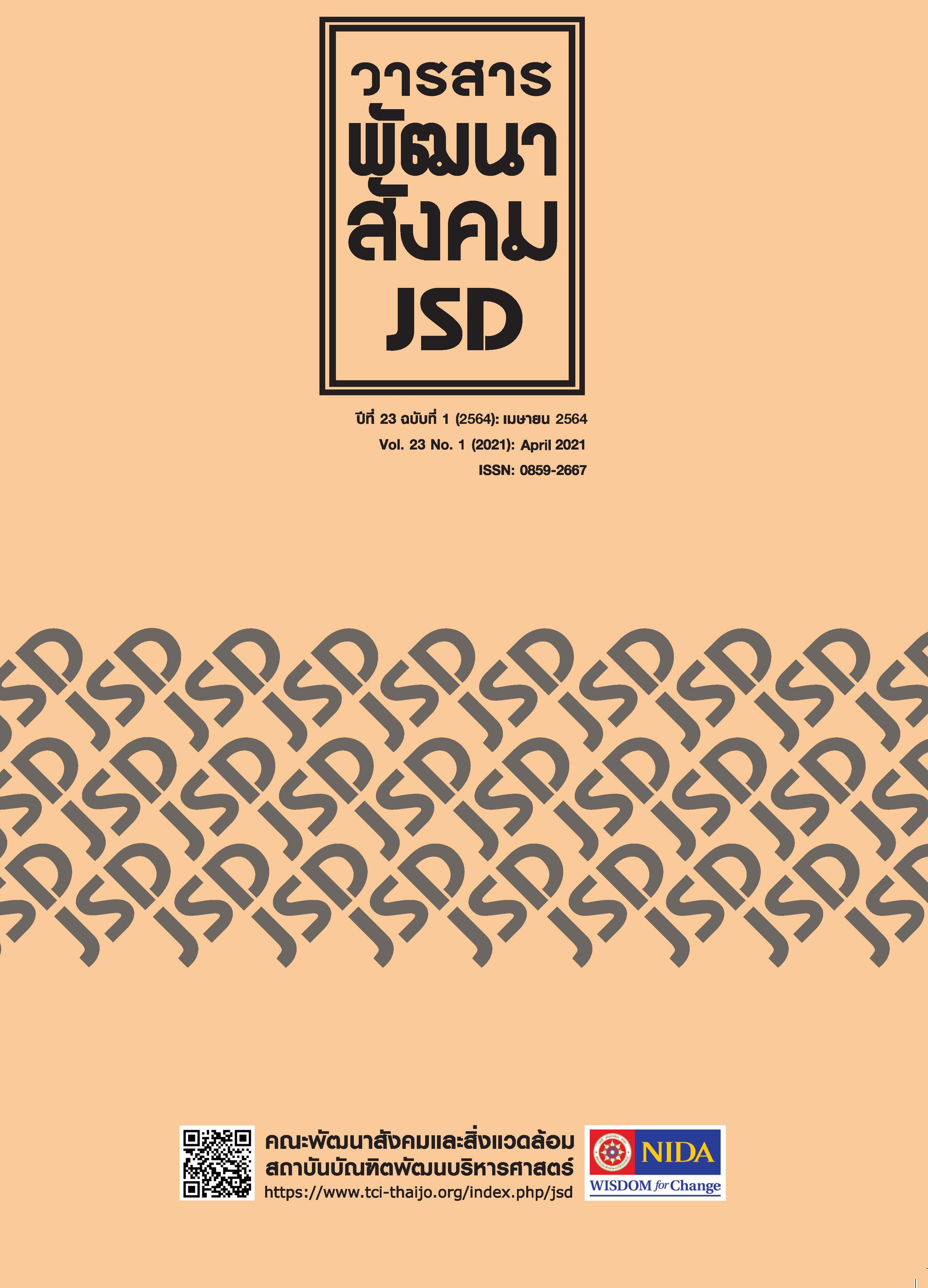Paradigm Innovation for Thai Farmers in the Digital Age
Main Article Content
Abstract
Article Details

This work is licensed under a Creative Commons Attribution-NonCommercial-NoDerivatives 4.0 International License.
References
Betje, P. (1998). Technological Change in the Modern Economy: Basic Topics and New Developments. Cheltenham: Edward Elgar.
Chearavanont, S. (2020). New Technology of Agro Industry to Serve Global Demands (In Thai). Retrieved from http://www.cp-enews.com/ news/ details/ cpinternal/1868
Christensen C. M., Michael E. Raynor & McDonald, R. (2015). What Is Disruptive Innovation?. Retrieved from https://hbr.org/2015/12/what-is-disruptiveinnovation
Damanpour, F. & Gopalakrishnan, S. (2001). The Dynamics of the Adoption of Product and Process Innovations in Organizations. Journal of Management Studies, 38(1), 65-84.
Drucker,P.F. (1985) The Discipline of Innovation. Harvard Business Review, 68(4), 67-72.
DTI. (2004). Succeeding Through Innovation, Creating Competitive Advantage Through Innovation: A Guide for Small and Medium Sized Businesses. Department of Trade and Industry. London.
Elkington, J. (1997). Cannibals with forks: The triple bottom line of 21st century business. Oxford, England: Capstone.
Freeman, C. & Soete, L. (1997). The Economics of Industrial Innovation. 3rd ed. London: Continuum.
Herkema, S. (2003). A Complex Adaptive Perspective on Learning within Innovation Projects. The Learning Organization. 10(6), 340-346.
National Innovation Agency. (2010). Innovation management executives (In Thai). Bangkok: National Innovation Agency.
Office of the National Security Council. (2015). National security policy 2558-2564 (In Thai). Bangkok: Cabinet and Royal Gazette Publishing Office.
Rogers, E.M. (1995), Diffusion of Innovation. 4th ed. NY: The Free Press.
Sakhonwasee, S. (2019). The agriculture of the future (In Thai). Nonthaburi: Mitr Kaset Marketing and Advertising.
Schilling, M.A. (2008). Strategic Management of Technological Innovation. 2nd ed. NY: McGraw-Hill Education.
Schwab, K. (2016). The fourth industrial revolution. New York: Crown Business.
Smits, R. (2002). Innovation studies in the 21 th century: Questions from a user’s Perspective. Technological Forecasting & Social Change, 69(2), 861-883.
Thailand Development Research Institute. (2018). Agricultural adaptation guidelines to support the opening of the AEC (In Thai). Retrieved February 20, 2010 from https://tdri.or.th/2018/01/aec-agri-adaptation
Wasi, P. (2007). Sufficiency Economy and Civil Society Ways to revive the social economy
(In Thai). Bangkok: Moh-Chao-Ban.
Yunus, M. (2010). Building Social Business: The New Kind of Capitalism that Serves Humanity's Most Pressing Needs. New York: Public Affairs.


